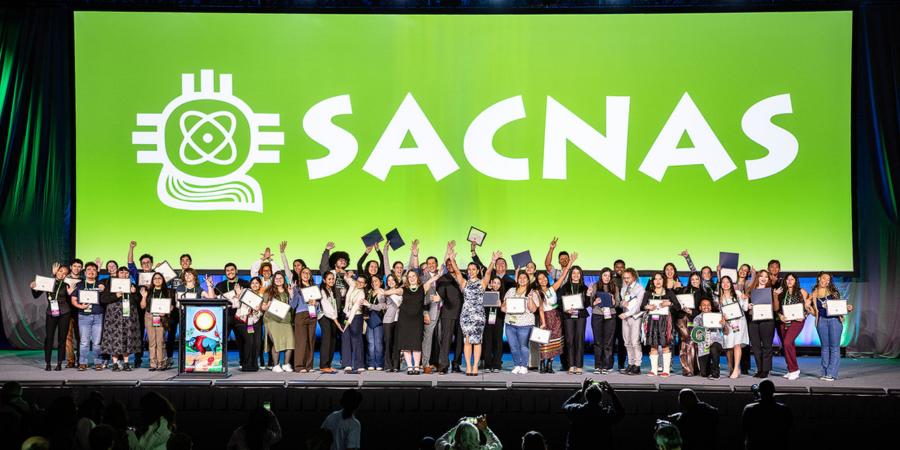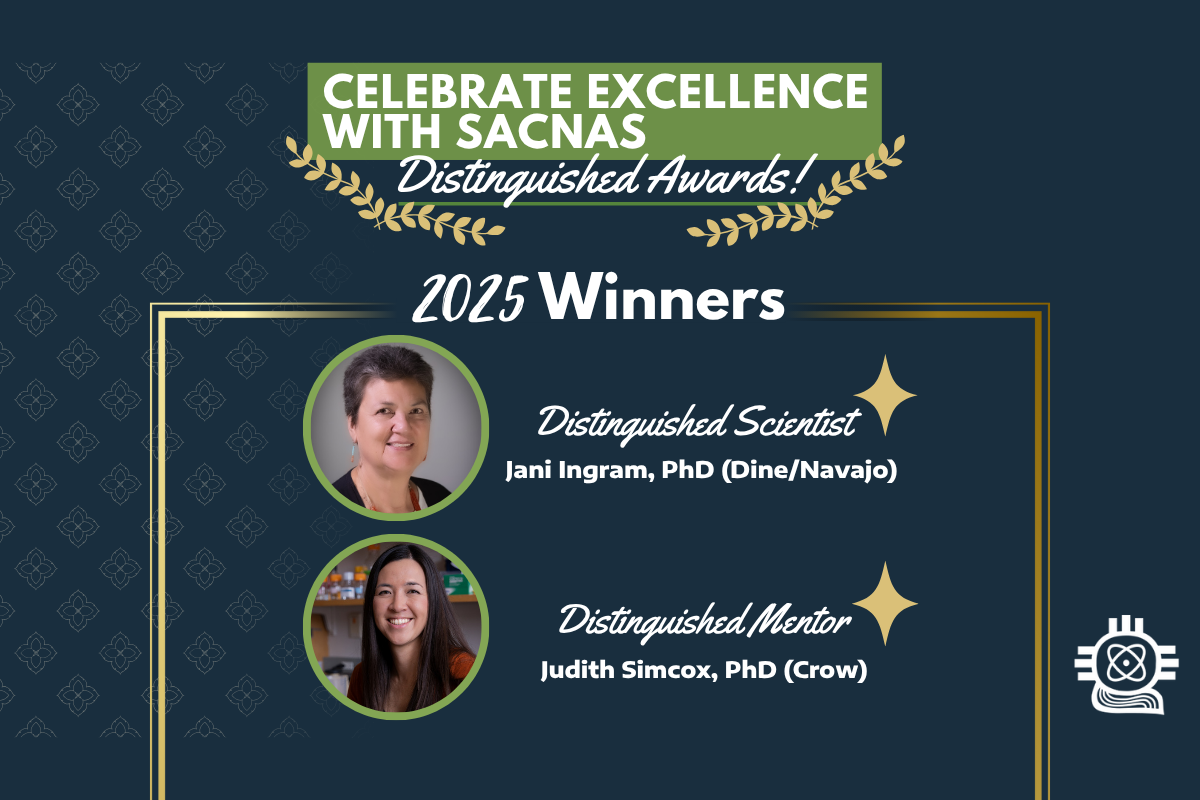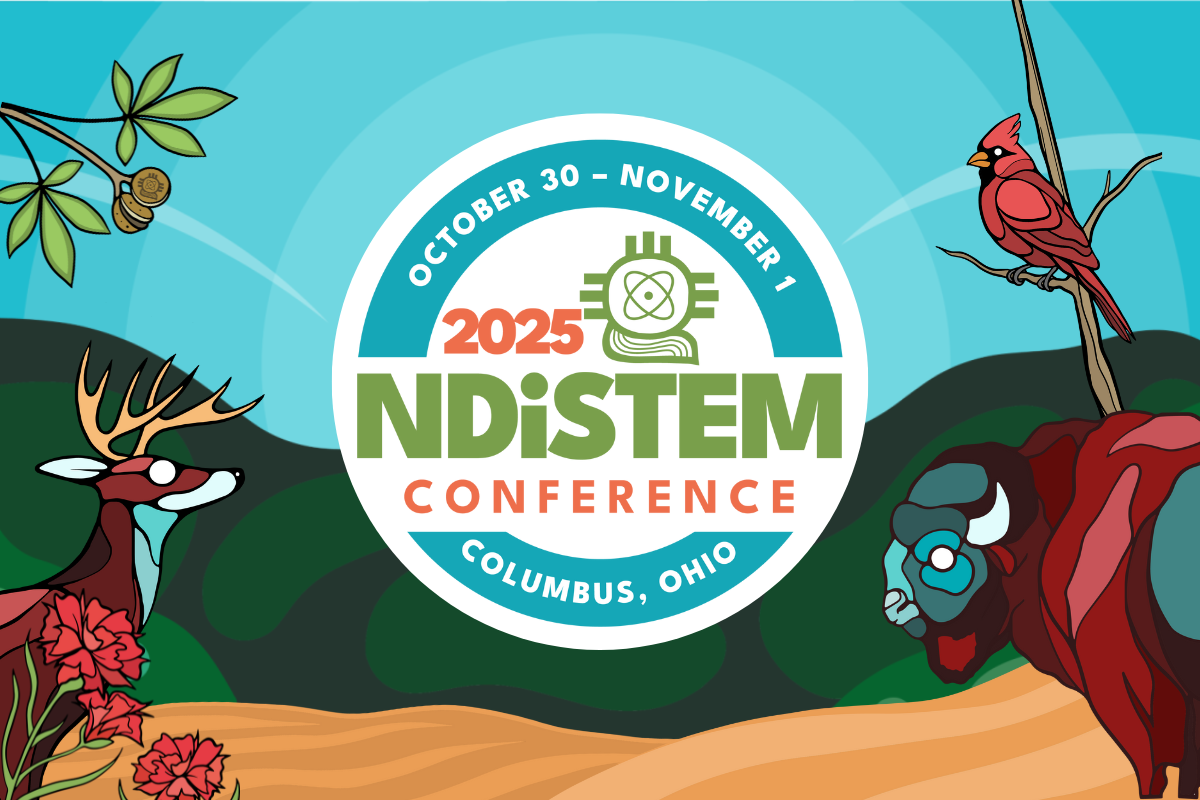Bio
Patricia Silveyra, MSc, PhD, ATSF is a tenured Professor and Chair of the Department of Environmental and Occupational Health at Indiana University School of Public Health-Bloomington. She also holds adjunct appointments in the Indiana University School of Medicine and is a member of the Melvin and Bren Simon Comprehensive Cancer Center. Her research focuses on sex differences in lung disease, and the effects environmental exposures in men and women, and has been funded by NIH and several national foundations.
Originally from Argentina, Dr. Silveyra is a first-generation college graduate and immigrant who has dedicated her career to advancing inclusion in STEM. She has mentored over 100 students and trainees, many of whom identify as women, first-generation, or members of historically excluded groups. A SACNAS member since 2014, she has attended every National Diversity in STEM Conference since then, supporting her students as presenters and serving as a mentor judge. She is a graduate of the Linton-Poodry SACNAS Leadership Institute (2016), the SACNAS-HHMI Advanced Leadership Institute (2017), and previously served on the SACNAS Board of Directors (2018–2020), including serving as Treasurer. She also founded the SACNAS Professional Chapter at Indiana University Bloomington in 2023.
Dr. Silveyra is an elected Fellow of the American Thoracic Society and a recipient of multiple national awards for her research, mentorship, and leadership. She is passionate about creating inclusive environments that foster the success of underrepresented scientists and is committed to continuing her service to the SACNAS community.
Personal Statement
I am seeking the opportunity to serve on the SACNAS Board of Directors to continue advancing the organization’s mission of building a more inclusive, equitable, and empowered scientific community. SACNAS has been instrumental in my growth as a scientist, leader, and mentor, and I am committed to giving back through continued service and advocacy. My values are deeply aligned with SACNAS’s focus on supporting the whole individual, celebrating culture, and expanding access to opportunities in STEM. I bring over a decade of experience in academic leadership, mentorship, and organizational governance. I previously served on the SACNAS Board from 2018 to 2020, including a two-year term as Treasurer, and was a member of the Student Presentation Committee. I have extensive experience mentoring students from underrepresented backgrounds, many of whom have presented at SACNAS, and I currently lead efforts to expand diversity and community engagement as Chair of the Department of Environmental and Occupational Health at Indiana University. I have also secured federal and foundation funding, managed departmental budgets, and built partnerships with national organizations and regional stakeholders. My leadership style is collaborative, strategic, and grounded in empathy. I am excited to continue supporting SACNAS through board service, helping to expand its reach, strengthen partnerships, and empower the next generation of diverse STEM leaders.
Mission Commitment
I have been deeply committed to the SACNAS mission throughout my career. Since 2014, I have attended every SACNAS NDiSTEM Conference and consistently brought and mentored students who presented their research. In 2016, I was selected for the Linton-Poodry SACNAS Leadership Institute, followed by the Advanced Leadership Institute in 2017. From 2018 to 2020, I served on the SACNAS Board of Directors, including as Treasurer, where I helped guide organizational growth and financial sustainability. I have also served on the SACNAS Student Presentation Committee, and regularly volunteer as a mentor judge, providing feedback to student presenters and supporting their academic development.
In 2020, I was honored with the SACNAS Outstanding Research and Professional Mentor Award, which recognized my longstanding commitment to mentoring and advocacy for underrepresented students in STEM. To continue expanding this support locally, I founded the SACNAS Professional Chapter at Indiana University Bloomington, which brings together postdocs, faculty and staff to foster community and advance inclusive excellence in science. Together, these experiences represent more than a decade of sustained involvement with SACNAS and reflect my deep dedication to its mission of empowering scientists through mentorship, leadership, and active engagement in programs that foster inclusion and belonging in STEM.
Leadership Style
One meaningful example of leading a diverse team comes from my role as Chair of the Department of Environmental and Occupational Health at Indiana University School of Public Health-Bloomington. Our department includes faculty, staff, and trainees from a wide range of disciplines, countries, racial and ethnic backgrounds, and career stages. Early in my tenure, we faced the challenge of redefining our departmental vision and priorities following a period of leadership transition. I facilitated a series of inclusive planning sessions, ensuring that every member—regardless of title or background—had a voice in shaping our goals. This process revealed differing worldviews and academic priorities, from faculty focused on community-based research in rural Indiana to those conducting international toxicology studies. By fostering open dialogue, establishing shared values, and emphasizing mutual respect, we developed a unified strategic plan that reflected our collective strengths and aspirations. One key lesson I learned was the importance of active listening and humility—recognizing that effective leadership involves creating space for others to lead, especially when navigating cultural or disciplinary differences. This experience continues to shape my collaborative leadership style, which prioritizes empathy, equity, and consensus-building, and has proven invaluable in mentoring, research collaboration, and organizational governance.
Fundraising Experience
Throughout my career, I have developed strong financial acumen through a combination of administrative leadership roles and experience managing multi-source funding portfolios. As Treasurer on the SACNAS Board of Directors from 2018 to 2020, I participated in organizational budget planning, financial oversight, and fundraising strategy discussions aimed at sustaining and expanding SACNAS programming. In my current role as Department Chair at Indiana University, I manage departmental budgets, oversee faculty startup packages, and participate in school-wide financial planning, ensuring responsible allocation of resources to support research, teaching, and community engagement. My fundraising experience includes securing support from both federal and non-federal sources. I have obtained funding from multiple national foundations and federal agencies to support research, training, and outreach efforts. I have also worked with local partners and philanthropic donors to fund student fellowships and educational programs. In addition, I have helped organize donor engagement events and community research symposia that connect stakeholders across academia, industry, and public health sectors to promote collaboration and raise financial support. As SACNAS President, I will continue to support ongoing fundraising efforts and work to expand partnerships with STEM-focused companies, foundations, and professional networks to help sustain and grow the organization’s impact.
Board Leadership
I believe a core responsibility of a board member is to uphold the mission and long-term sustainability of the organization through strategic guidance, fiduciary oversight, and active engagement. Board members must ensure that decisions align with the organization’s values and goals, while also anticipating future challenges and opportunities. This requires not only sound judgment and ethical leadership, but also a commitment to collaboration and accountability. As stewards of the organization, we must advocate for its mission, support fundraising efforts, and serve as ambassadors to broader communities and stakeholders. Ultimately, our responsibility is to help build a strong foundation that enables the organization to thrive and serve its members with integrity and impact.
Organizational Governance
I have held multiple governance roles in academic institutions and national scientific organizations, contributing to leadership, strategic planning, and inclusive excellence. From 2018 to 2020, I served on the Board of Directors of SACNAS, including a two-year term as Treasurer, where I was involved in financial oversight, long-term planning, and organizational development. I also served on the SACNAS Student Presentation Committee and regularly volunteer as a mentor judge. At the Pennsylvania State University College of Medicine, I was Interim Director for Diversity and Inclusion in Education from 2015 to 2016, where I led efforts to support underrepresented faculty and students and contributed to institutional governance around diversity initiatives. From 2018 to 2020, I served as Director of the Biobehavioral Laboratory at the University of North Carolina at Chapel Hill School of Nursing, managing governance related to research operations and strategic growth. Currently, I serve as Chair of the Department of Environmental and Occupational Health at the Indiana University School of Public Health-Bloomington, following a year as Interim Chair. In this role, I lead faculty governance, oversee departmental budgeting and hiring, and guide strategic visioning. These experiences reflect my long-standing commitment to institutional leadership and advancing equity in science and education.
National Engagement
Throughout my career, I have worked closely with a range of regional and national organizations, professional societies, agencies, and foundations, building partnerships that align with SACNAS’s mission and could further strengthen its impact. I have held leadership roles with SACNAS, the American Physiological Society (APS), the American Thoracic Society (ATS), and the National Academies of Sciences, Engineering, and Medicine as a member of the "New Voices" program. Through these roles, I have developed strategic collaborations focused on advancing diversity in STEM, mentoring underrepresented scientists, and promoting inclusive research practices. I have collaborated with NIH-funded initiatives such as PRIDE and NMRI, served as a reviewer and panelist for NIH and NSF, and worked with foundations and academic partners to expand access and opportunity. As Chair of the Department of Environmental and Occupational Health at Indiana University, I have also cultivated regional partnerships with public health agencies and academic institutions to expand opportunities for students and trainees from diverse backgrounds. These relationships have allowed me to connect SACNAS trainees with career development programs, travel and training support, and scientific networks. I believe my experience building cross-sector collaborations can help SACNAS enhance its strategic partnerships and amplify its national reach.










